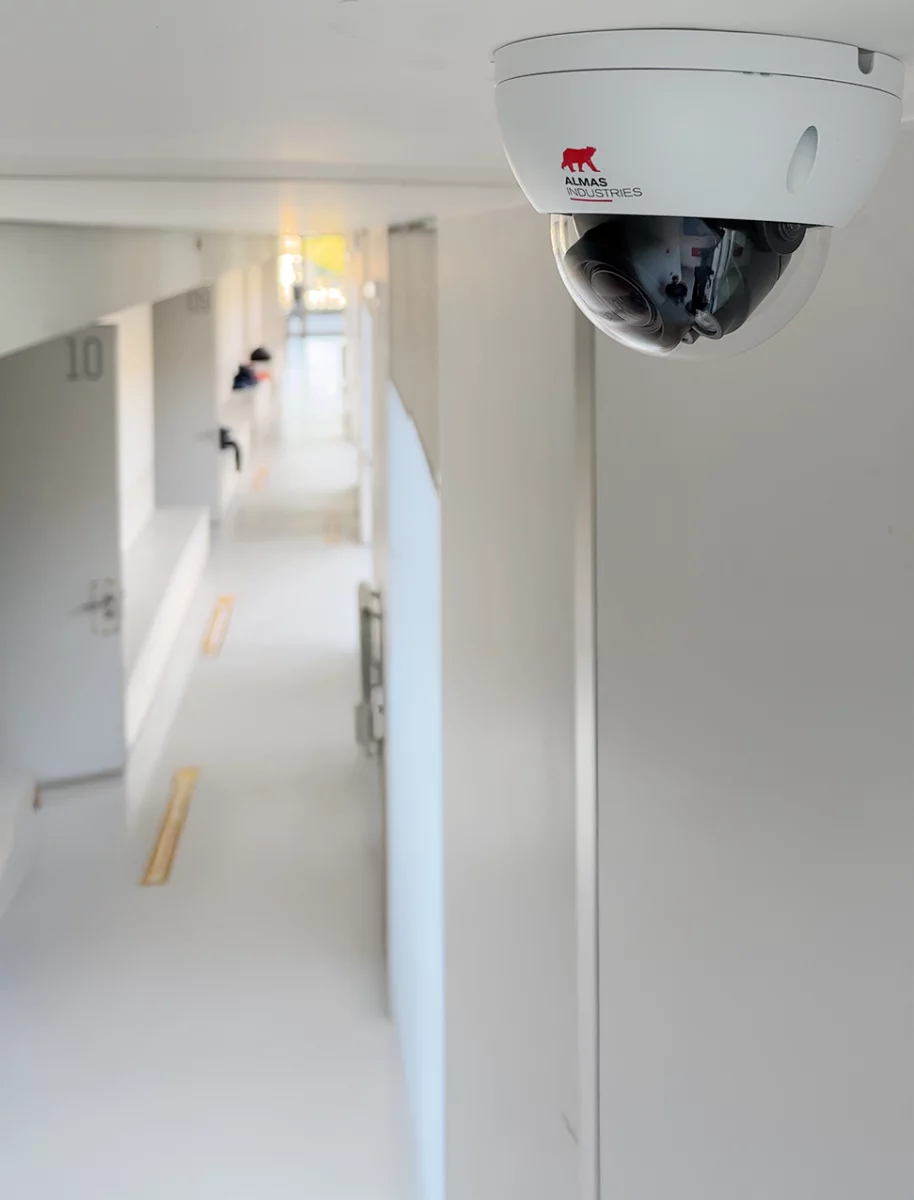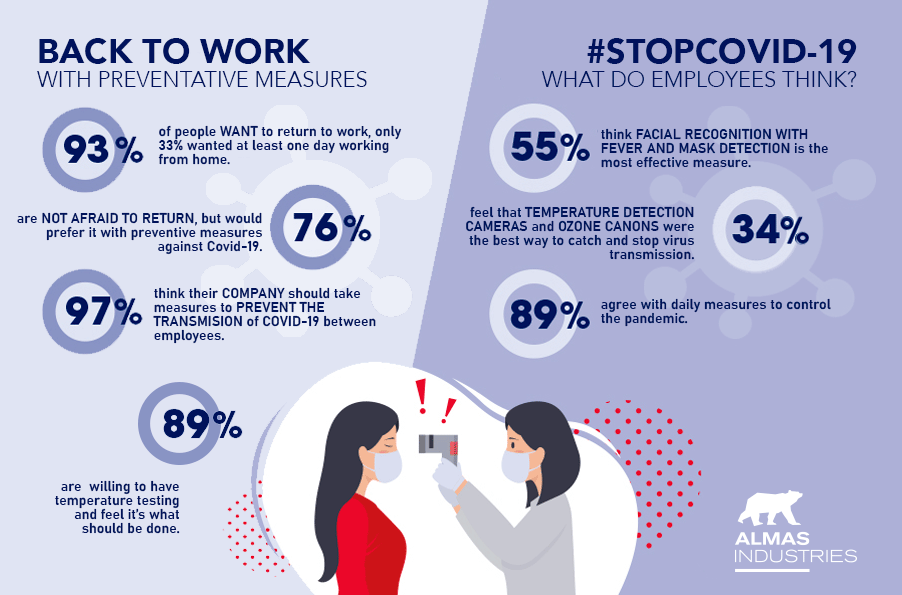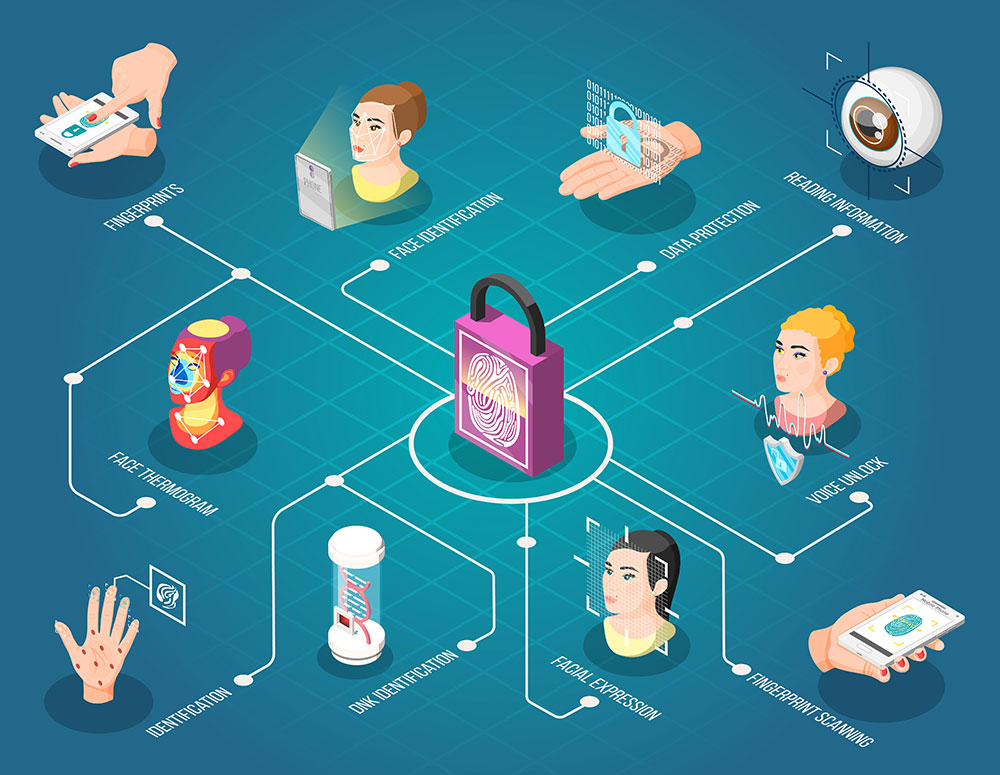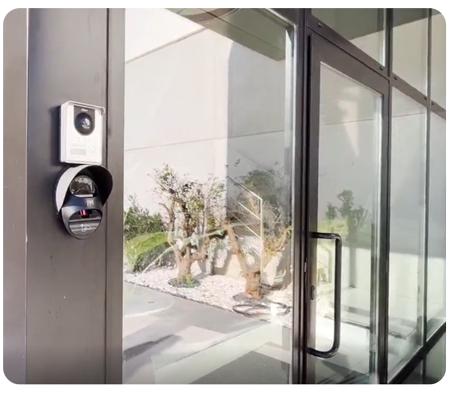


Showing: Most Recent

Almas Industries is delighted to announce a new collaboration with Accuscience - a Pharmed Group company; Accuscience will be adding Almas biometric access control and thermal solutions to their customer offering; complementing their existing range of PPE perfectly.

Should masks be compulsory in a wider range of workplaces? Should fever detection be mandatory in environments that seem to encourage Covid-19 transmission?

Poll results from our Spanish team around how employees are feeling about getting back to work and going to the office. Have your company asked your opinion or communicated as to when and why they are getting you back to the office?

Covid-19 seems to be flourishing in the cold, damp environments of Europe's meat processing plants. What can employers do to safeguard their workforces and ability to operate? Almas Industries' three-in-one solutions offer contactless access control, fever and mask detection, long term benefits of increased productivity while protecting your team from virus transmission.

With the demand for commercial property set to drop into an abyss as companies fail, or look to reduce overheads in the face or a stuttering economy, how do commercial landlords save their businesses? Should we all be embracing home working, or are management overlooking the benefits that office collaboration brings?

With the worldwide impact of the Coronavirus pandemic multiplying exponentially, it seems very relevant to consider viruses, bacteria and transmission. What is the difference between a viral infection and a bacterial infection? What steps can we all take to stay healthy? And how can biometric readers help prevent the spread of disease? Almas is committed to supporting all of our customers during this period of uncertainly. Our readers are designed with safety in mind, and we believe that they are a practical solution which can help to prevent the spread of disease. Read on to find out more.

Using a PIN to unlock your phone, make a payment or enter a building are fast becoming a thing of the past. Biometric authentication is the future, and it is much more than just fingerprints. From maintaining your employees’ attendance records to combating the challenges of fraud, biometric recognition systems offer the highest level of security. Let’s review this unique system and what makes it so sought-after.

A recent legal decision in a case within the construction sector in Australia has highlighted just how important time management is when running a construction site. White Constructions, a developer, bought a legal action against sewer designer, IWS in connection with the development of a 100-lot site in the Illawarra region of New South Wales. White Constructions lost the case because the paper-based site diary they used to track the movements of everyone on site was proved to be inadmissable as evidence of a delay. Read on to find out how using a biometric access control system could have prevently this costly court case from happening.


